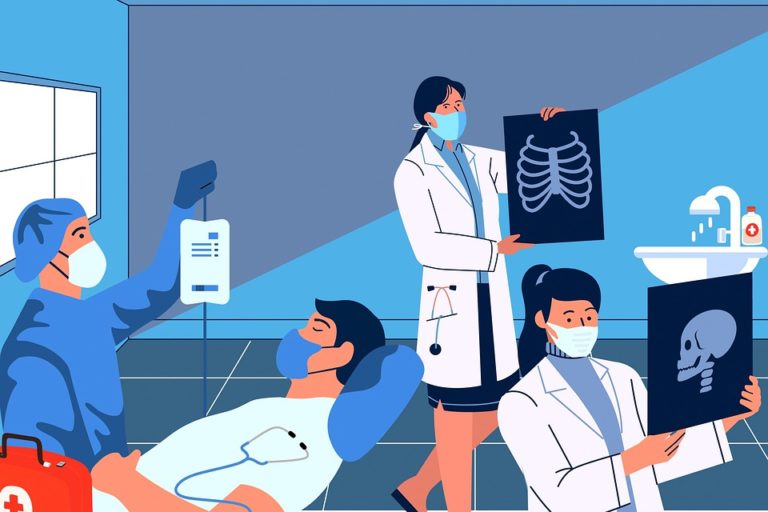Book Appointment Now

Clinical Decision Support Systems (CDSS) in Nursing
Clinical Decision Support Systems (CDSS) in Nursing are transforming the way nurses approach clinical decision-making, providing data-driven insights that enhance patient care and safety. These advanced tools integrate patient data, clinical guidelines, and evidence-based practices to offer real-time recommendations, enabling nurses to make informed decisions at the point of care. As healthcare becomes more complex, CDSS play a crucial role in supporting nurses in their critical decision-making processes, improving patient outcomes, and reducing the risk of errors. In this article, we explore how CDSS in nursing are shaping the future of healthcare and empowering nurses to deliver more accurate, timely, and safe care.
Get a custom paper help about clinical decision support systems
Order Custom Nursing Paper
What is a Clinical Decision Support System (CDSS)?
A Clinical Decision Support System (CDSS) is a healthcare technology that provides healthcare professionals, including nurses, with intelligent, data-driven support to enhance decision-making at the point of care. These systems integrate patient data, clinical guidelines, medical knowledge, and advanced algorithms to offer real-time recommendations for clinical actions. CDSS can take various forms, such as alerts, reminders, diagnostic support, and treatment recommendations, designed to assist in clinical decision-making.
The Role of CDSS in Nursing
Nurses play a critical role in patient care, often making key decisions related to patient assessment, interventions, and care planning. Clinical decision support systems (CDSS) assist nurses by providing evidence-based recommendations that ensure more accurate, timely, and safe clinical decisions. By incorporating data from multiple sources, including electronic health records (EHRs), lab results, and patient history, CDSS help nurses make well-informed decisions that improve patient safety and health outcomes.
1. Supporting Evidence-Based Practices
One of the main advantages of CDSS in nursing is their ability to promote evidence-based practice. By integrating clinical guidelines and research findings into the decision-making process, CDSS enable nurses to base their care decisions on the most up-to-date and reliable evidence. This helps ensure that care is consistent with the latest clinical standards and best practices, which improves patient outcomes.
- Example: If a nurse is assessing a patient with hypertension, the CDSS might provide guidelines for the most appropriate treatment protocols based on current evidence, helping the nurse make the best decision for the patient’s condition.
2. Enhancing Patient Safety
Patient safety is a top priority in nursing practice, and CDSS are designed to reduce the risk of medical errors and adverse events. By analyzing patient data in real-time, CDSS can flag potential risks, such as drug interactions, allergy alerts, or deteriorating vital signs, allowing nurses to act swiftly and prevent harm.
- Example: If a nurse is about to administer a medication to a patient, the CDSS can cross-check the prescription against the patient’s allergies or other medications to prevent potentially dangerous interactions.
3. Timely and Accurate Decision-Making
In fast-paced clinical environments, nurses must often make quick decisions with limited information. CDSS provide timely recommendations and alerts, helping nurses make accurate decisions in a short amount of time. These systems assist in prioritizing care, identifying high-risk patients, and addressing clinical concerns before they escalate into more serious problems.
- Example: If a nurse is monitoring a patient in the ICU, the CDSS can alert them to early signs of sepsis or heart failure, prompting immediate action to prevent a critical event.
Types of CDSS Used in Nursing
1. Knowledge-Based CDSS
These systems rely on databases of clinical knowledge and guidelines to provide recommendations. They incorporate clinical protocols, treatment guidelines, and best practices, which help nurses make decisions based on well-established evidence.
- Example: A knowledge-based CDSS might recommend specific nursing interventions for wound care based on the latest guidelines for infection prevention and healing.
2. Non-Knowledge-Based CDSS
Non-knowledge-based systems use machine learning and artificial intelligence (AI) to analyze patient data and generate recommendations. These systems do not rely solely on predefined knowledge but instead learn from patterns in patient data to provide insights and predictions.
- Example: A non-knowledge-based CDSS could analyze a patient’s vital signs and lab results, predicting the likelihood of complications and offering suggestions for further monitoring or intervention.
3. Patient-Specific CDSS
These systems focus on individual patient data, analyzing clinical history, current health status, and risk factors to provide tailored recommendations for care. Patient-specific CDSS help nurses make decisions based on the unique needs of each patient.
- Example: A patient-specific CDSS could recommend personalized care plans for patients with chronic conditions, like diabetes or heart disease, by analyzing their medical history and current health status.
Benefits of CDSS in Nursing Practice
1. Reducing Errors and Improving Accuracy
By providing real-time alerts and data-driven recommendations, CDSS help reduce human errors that can occur due to fatigue, time pressure, or miscommunication. This results in more accurate clinical decisions and reduces the likelihood of adverse events.
2. Streamlining Workflow and Enhancing Efficiency
CDSS can help streamline nursing workflows by reducing the time spent searching for clinical guidelines or drug information. Nurses can access critical information and recommendations in real-time, which allows them to focus more on direct patient care.
3. Empowering Nurses with Knowledge
Nurses are empowered with the tools and information they need to make informed decisions. CDSS provide instant access to the latest research, clinical guidelines, and patient-specific data, helping nurses stay up-to-date and make evidence-based decisions.
4. Supporting Clinical Education and Development
CDSS also have an educational component, helping nurses stay informed about the latest research and clinical guidelines. By incorporating educational resources into the decision-making process, CDSS contribute to the ongoing professional development of nurses.
Challenges in Implementing CDSS in Nursing
1. Technology Adoption and Integration
One of the biggest challenges in implementing CDSS in nursing is ensuring that these systems are effectively integrated into existing electronic health record (EHR) systems. Nurses need adequate training to use these tools, and the integration process must be seamless to avoid workflow disruptions.
2. Data Quality and Completeness
The accuracy of recommendations from a CDSS is only as good as the data inputted into the system. Incomplete or inaccurate patient data can lead to incorrect recommendations, which could negatively impact patient care.
3. Over-reliance on Technology
While CDSS are powerful tools, they should not replace the clinical judgment of experienced nurses. Over-reliance on these systems can result in automation bias, where nurses might defer to the system’s recommendations without considering other important clinical factors.
The Future of Clinical Decision Support in Nursing
Clinical Decision Support Systems (CDSS) in Nursing are an invaluable tool in nursing practice, helping nurses make better, evidence-based decisions that improve patient safety and care outcomes. While challenges remain, the ongoing advancements in CDSS technology, including the integration of artificial intelligence (AI) and machine learning, promise to further enhance decision-making processes in nursing. By incorporating CDSS into everyday nursing practice, healthcare organizations can promote patient safety, reduce medical errors, and empower nurses with the tools and knowledge they need to deliver high-quality, personalized care.
Call to Action:
Healthcare providers and nursing professionals must continue to advocate for the integration of Clinical Decision Support Systems (CDSS) into clinical practice. By ensuring proper implementation and training, CDSS can play a significant role in transforming patient care and improving the safety and quality of nursing practice.
Also read: Electronic Clinical Documentation with Clinical Decision




